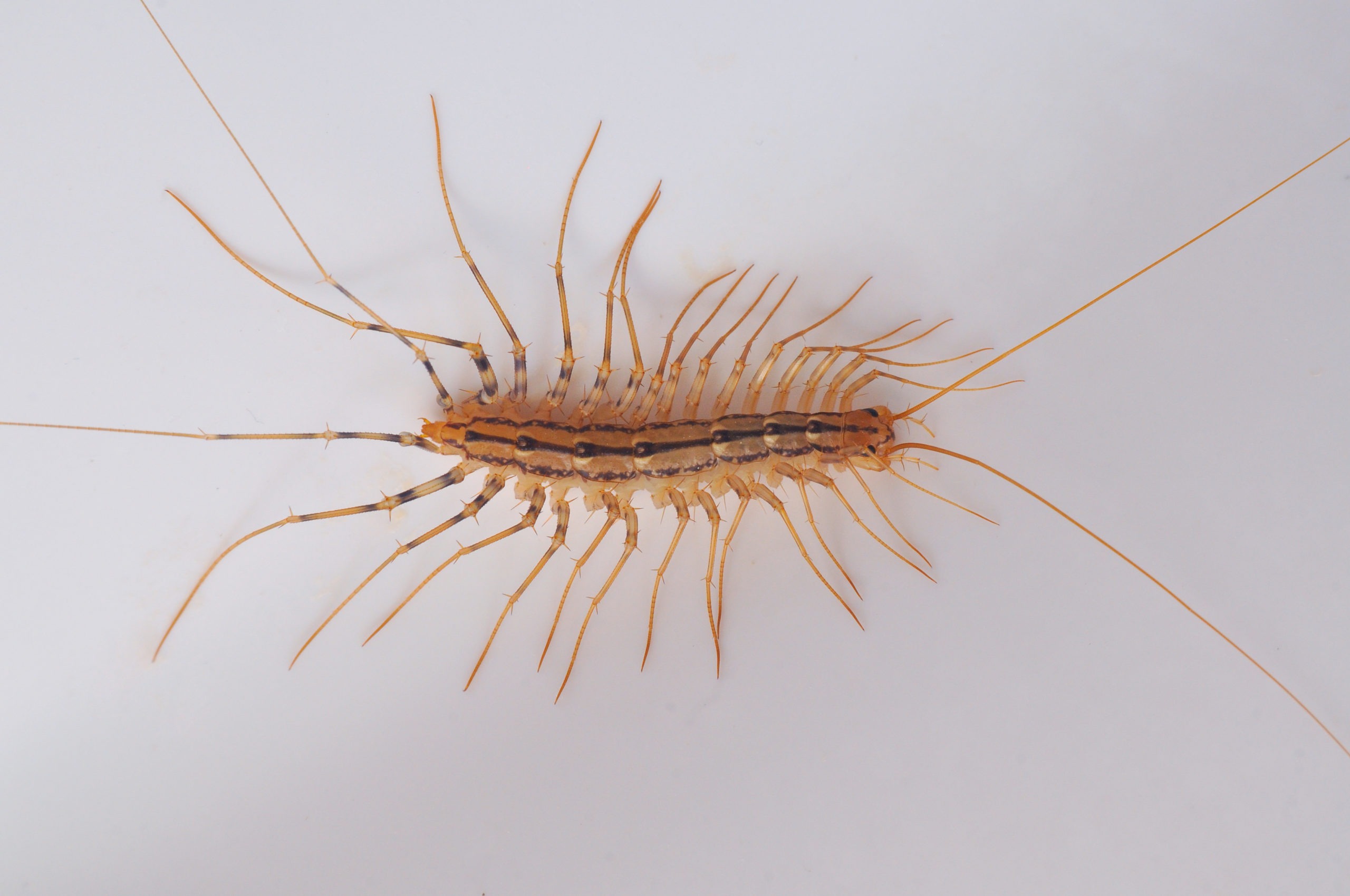You wake in the middle of the night and head to the kitchen for a glass of water. The instant you turn on the light, what looks like a hairball runs across the floor, going a foot per second.
You, of course, panic.
No one would blame you. House centipedes look terrifying. They’re all legs and antennae. They also move incredibly quickly, so it’s hard to know what, exactly, you’ve found lurking in your house.
But are centipedes dangerous? Keep reading to find out if you should be concerned about finding house centipedes in your home.
What Are House Centipedes?
House centipedes (Scutigera coleoptrata) prefer to live in cool, damp areas. They are nocturnal, hunting at night for bugs like spiders, termites, silverfish, bed bugs, and cockroaches.
At only about an inch long, it still manages to have fifteen pairs of legs. Thanks to having so many legs, house centipedes are unbelievably fast.
These centipedes adapt quickly to new living conditions. This allowed them to spread to nearly every country, except for a few places in Southeast Asia.
What Attracts Centipedes to Your Home?
Moisture and a safe place away from extreme heat or cold are two things a centipede cannot pass up. The natural humidity in Maryland and Virginia, unfortunately, makes centipedes a common sight.
They also have an incredible prey drive. Centipedes are always on the lookout for their next meal. One major reason houses become infested with centipedes is because those centipedes are hunting something else, like spiders, which have also infested the home.
Are Centipedes Dangerous to Humans?
House centipedes sting with appendages called forcipules and administer a venom to subdue their prey.
However, because of their size, this venom poses virtually no risk to humans if they are stung. Most people who are stung by centipedes experience redness and slight swelling in the area. Those who are allergic to bee stings may have a more severe reaction.
How Do You Get Rid of House Centipedes?
Because house centipedes are considered beneficial arthropods, it isn’t recommended that you try to eradicate them.
You can, however, make your home less inviting to centipedes. Here is a quick checklist of ways to keep centipedes at bay.
- Fix any leaking water sources near or in your home
- Reduce the number of insects living in the house
- Seal any cracks in walls or along the home’s foundation
- Make sure all the doors fit tightly in the frame
Need Help Controlling Centipedes in Your Home?
Are centipedes dangerous? Not really. But we understand why you don’t want them in your home.
At Planet Friendly Pest Control, we offer families a way to feel safe from pests while ensuring there is no harm done to the environment. The products we use won’t hurt humans or pets.
Our specialists will work with you to clear up any concerns you have about house centipedes and any other insects which may be attracting them to your home.
Feel free to contact us anytime to learn more about our Bug Free Home service.
NEED HELP?
If you live in Southern Maryland, or Northern Virginia
FIND YOUR SOLUTION HERE
People, Pet & Pollinator Safe! Pest control for people who care.
